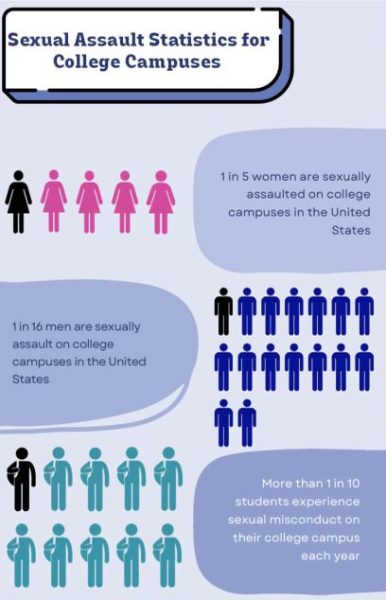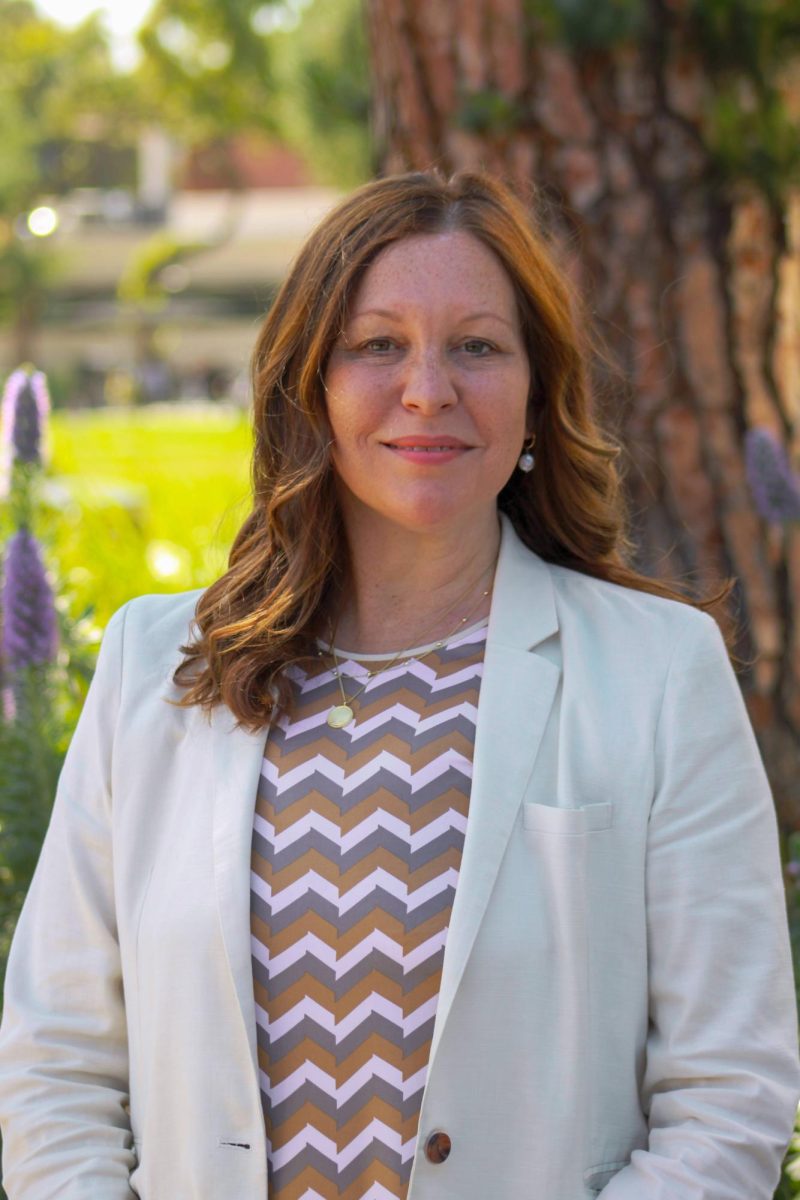Trigger Warning: The following content may contain triggering topics such as sexual assault & violence.

A study done by the National Sexual Violence Resource Center describes that one in five women and one in 16 men are sexually assaulted on college campuses across the United States.
Sexual assault is an umbrella term for different types of sexual violence.
Sexual assault can include attempted rape, molestation, or unwanted touching, convincing someone to engage in sexual acts without consent or using persuasion, and lastly, rape. A common form of rape that happens on college campuses is known as date rape. Date rape is defined as using a foreign substance or a drug to take advantage of someone to engage in intercourse with them without consent.
With 21 being the legal age to consume alcohol in the United States, it is common that sexual violence is more likely to happen as 21 is the age of most college students.
California State University, Bakersfield’s annual security report from the year 2023 is available to all students and faculty. These records are made public due to the Jeanne Clery Act.
The Clery Act requires that all college campuses release and make available records of all campus crime, including sexual assault.
This act was created in honor of Jeanne Clery, a student at Lehigh University in Pennsylvania who was raped and murdered in her on-campus dorm. Her parents stated that if they had known the crime rate/statistics at that campus, they would have never sent her to that specific university. Therefore, the Clery Act was signed to prevent these crimes or any crime from happening due to the transparency of these types of records.
According to the auditor of California, there were 40 cases reported of sexual assault or harassment in the fiscal year 2022-23 throughout the 23 CSU campuses.
As far as CSUB goes, only one on-campus case of statutory rape has been reported and filed in the past five years. The case occurred in 2020.
The creation of Title IX in the early 1970s created an expanse for students and faculties of all universities in the United States to be protected of things such as discrimination based on sex, gender, race/ethnicity, as well as sexual harassment and assault, including rape, sexual battery and sexual coercion.
It is law that every university in the U.S. must have a Title IX coordinator, a policy against sex discrimination or Title IX violations and a known procedure outlining steps students can take if they are in a situation that includes a Title IX violation/crime.
Marcus Brown, the director of Equity, Inclusion, and Compliance as well as CSUB’s Title IX coordinator described the importance of Title IX and what it does for students.
“An incident report form would allow any individual that either had an experience, witnessed an experience, or somehow became aware of something concerning to them that they wanted us to be aware of […] that allows them to put as much information as they have about the experience in that form and send it to us,” Brown said.
The form mentioned is on the CSUB Equity, Inclusion and Compliance website. The website has six menu tabs at the top of the page, directing whoever is reading to different resources. On the second menu tab, which is named Title IX, there is a list of not only the things covered by Title IX, but on the side of the page there are different resources including the incident report and formal complaint report.
At the bottom of the page, there are two boxes that describe important information regarding reporting an incident as well as filing a formal complaint.
Brown also mentioned the Campus Advocate, which is a resource CSUB offers to anyone who may be dealing with the after effects or the current state of their experience.
“The Campus Advocate is someone that an individual can go to and share this information, talk about any of the details they are going through in an absolute confidential bubble,” said Brown.
He also notes other resources such as the Student Health Center and the Counseling Center on campus.
The Title IX section on CSUB’s website provides resources as well as definitions to things that are protected under its policy.
To learn more, visit CSUB’s Title IX menu.







